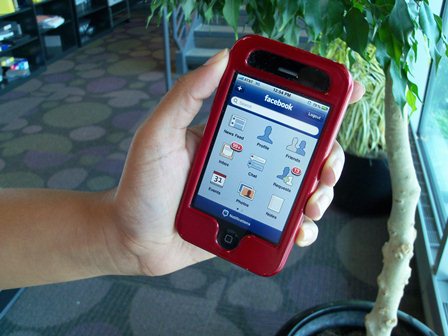 (CNN) -- An Argentinian judge has ordered Facebook to remove a profile from its site that allegedly was defaming a local business.
(CNN) -- An Argentinian judge has ordered Facebook to remove a profile from its site that allegedly was defaming a local business.
Judge Nestor Osvaldo Garcia also said that going forward, the social networking giant must prohibit any content that "insults, offends, assaults, violates, impairs or affects the privacy (or) commercial activity" of a bookstore, Librerias Lader.
The ruling, which came down Monday, is the not the first in which Argentina's judiciary has ordered Facebook to delete or modify content on its site.
The bookstore was founded in the city of Rosario, about 185 miles northwest of Buenos Aires, some 30 years ago, and now consists of eight locations there.
Recently, Librerias Lader became the target of an anonymous Facebook profile that threatened the store's management, said Marcelo Fizzani, the chain's sales manager.
The bookstore owners suspect that behind the offending profile -- which was registered with a fictitious name -- were one or more former employees.
The profile accused Librerias Lader of exploiting its workers and named specific managers by name, Fizzani said.
The profile page went as far as publishing the addresses of the eight bookstore locations, together with the codes to disarm the alarm system, he said.
"We then contacted our lawyers," Fizzani said. "The goal was to remove the page. It was affecting our work and the safety of the people who work here."
Business, however, was not affected negatively by the Facebook postings, he said.
"The right to one's own image is a personal right, individual, like an extension of personality, contained within the limits of a person's privacy. Therefore, everyone has an exclusive right over his image that extends to its use, such that one can oppose its distribution when done so without authorization," the ruling states.
The judge didn't take into account whether the accusations being made against the bookstore were true or not. If indeed there are violations happening at Librerias Lader, the complainants should abide by the legal avenues for making denunciations, the judge wrote.
To do otherwise, as the anonymous Facebook page did, "is to enter a path with no return that implies the belief that 'justice' is being done by one's self, which is nothing more than a return to a time when man roamed thousands of years ago seeking to substitute reason for force and force for reason," the ruling states.
Representatives for Facebook on Tuesday said they had not read the ruling and could not comment. However, the offending profile appeared to no longer be on the site.
Outside free speech considerations, it is possible that the profile in question violated Facebook's terms of use. It is against Facebook rules to threaten to harm others.
The global reach of social media means that companies have to deal with different freedom of speech laws in different parts of the world, said Jeff Hermes, director of the Digital Media Law Project at Harvard's Berkman Center for Internet & Society.
"You face a very different philosophy as far as freedom of the press, freedom of speech and the role of government," he said.
In this case, U.S. law and Argentinian law may not coincide. In the United States, there is usually not a right to privacy in cases where someone's image is used in a nonexploitative way, Hermes said. Argentinian law appears to give much more strength to the right of privacy of its citizens.
It puts companies in a position where they have to decide whether or not to abide by such rulings, or to block offending content in some countries, but allow it in others.
"It becomes a very difficult patchwork," Hermes said.
In 2010, a judge in the Argentinian city of Rafaela ordered Facebook to remove a fake profile of a man. The man argued that someone used his name and photo to build a profile and made claims about his sexual orientation. That ruling also ordered Google, Yahoo! and Bing to amend its search engines so that the offending page would not show up in search results.
Also that year, a judge in Mendoza ordered Facebook to close all "groups" created by minors that promoted truancy and other delinquency. That ruling said the social networking site should remove all groups made by minors that "promote objectives that could cause harm" to them.
Portland and Seattle
Free Subscription to Breaking News
Free Subscription to Breaking News






















































































































































































































































































































































